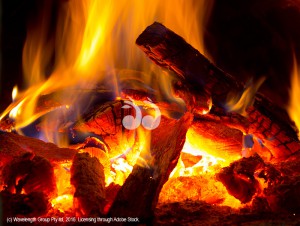Before You Fire Up
AS residents of the Upper Hunter prepare to light the first fires of the season Council has issued a reminder to reduce air pollution or you may be fined.
Wayne Bedggood, mayor of the Upper Hunter Shire Council said each year the Council receives a few complaints about wood smoke, which they have to follow up and sometimes issue fines to the polluters.
“Complaints are investigated in accordance with the Protection of the Environment Operations Act 1997 and if the issue can’t be resolved, Council officers may issue a Smoke Abatement Notice where warranted,” said Mayor Bedggood.
“Pollutants in the smoke may include gasses such as carbon monoxide, organic compounds, including air toxins and fine particles,” he said.
“A clean chimney, using the right wood and running the heater efficiently, will help reduce the human health impact on you and your neighbours as well as the environmental impact,” Mayor Wayne Bedggood said.
To reduce wood smoke the Council recommend the following:
- always burn small logs of aged, dry hardwood – unseasoned wood has more moisture and is more likely to smoke;
- store firewood under cover in a dry ventilated area; freshly cut wood needs to be stored for eight to 12 months;
- never burn rubbish, driftwood or treated or painted wood. These pollute the air and can be poisonous;
- when lighting a cold heater use plenty of dry kindling to establish a good fire quickly;
- stack wood loosely in the firebox so air can circulate – don’t cram the firebox full;
- turn off the warm air circulation fan when lighting up and when refuelling;
- keep the flame lively and bright; your fire should only smoke for a few minutes when you first light it and when you add extra fuel. Open the air controls fully for five minutes before and 15 to 20 minutes after reloading;
- don’t let your heater smoulder overnight – keep enough air in the fire to maintain a flame;
- check your chimney regularly – if there is smoke coming from the chimney, increase the air supply to your fire;
- clean the chimney every year, to prevent creosote build-up.
 scone.com.au
scone.com.au